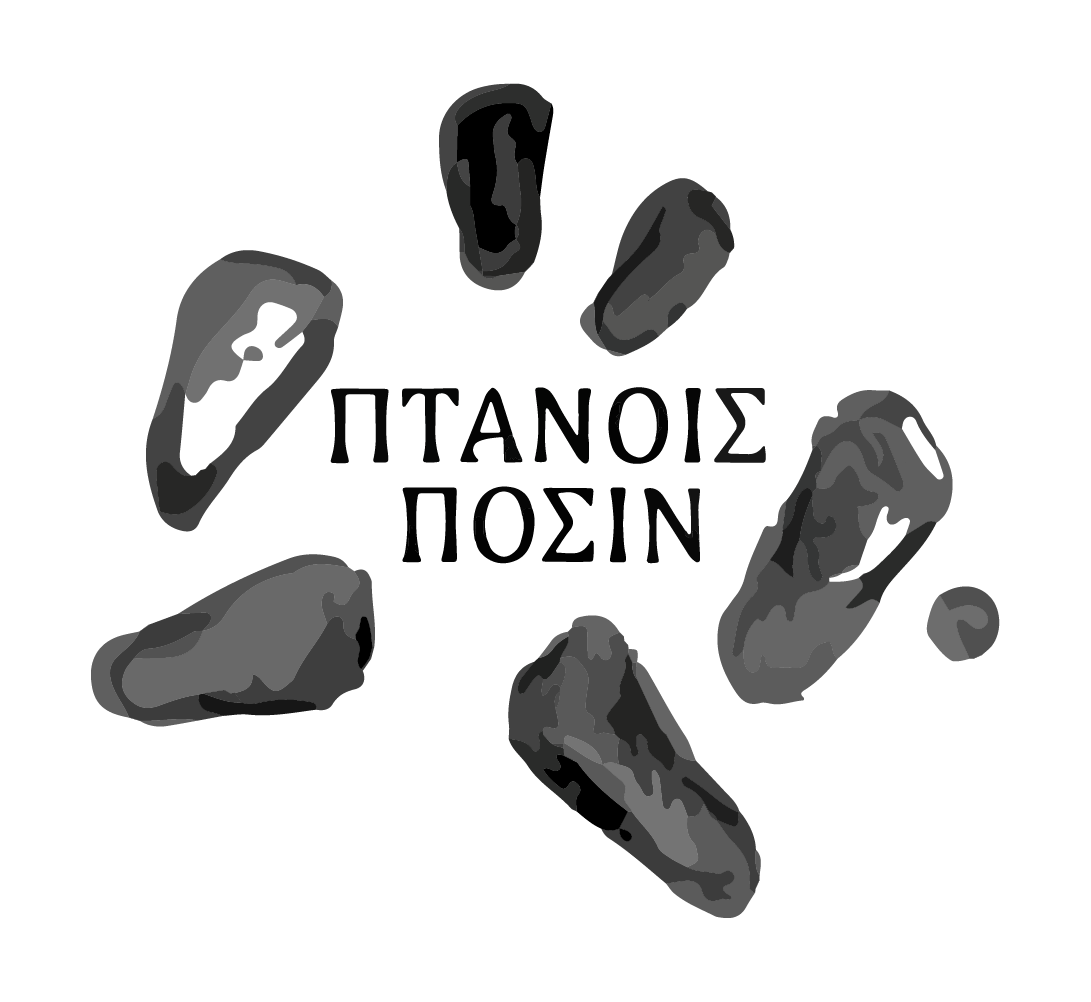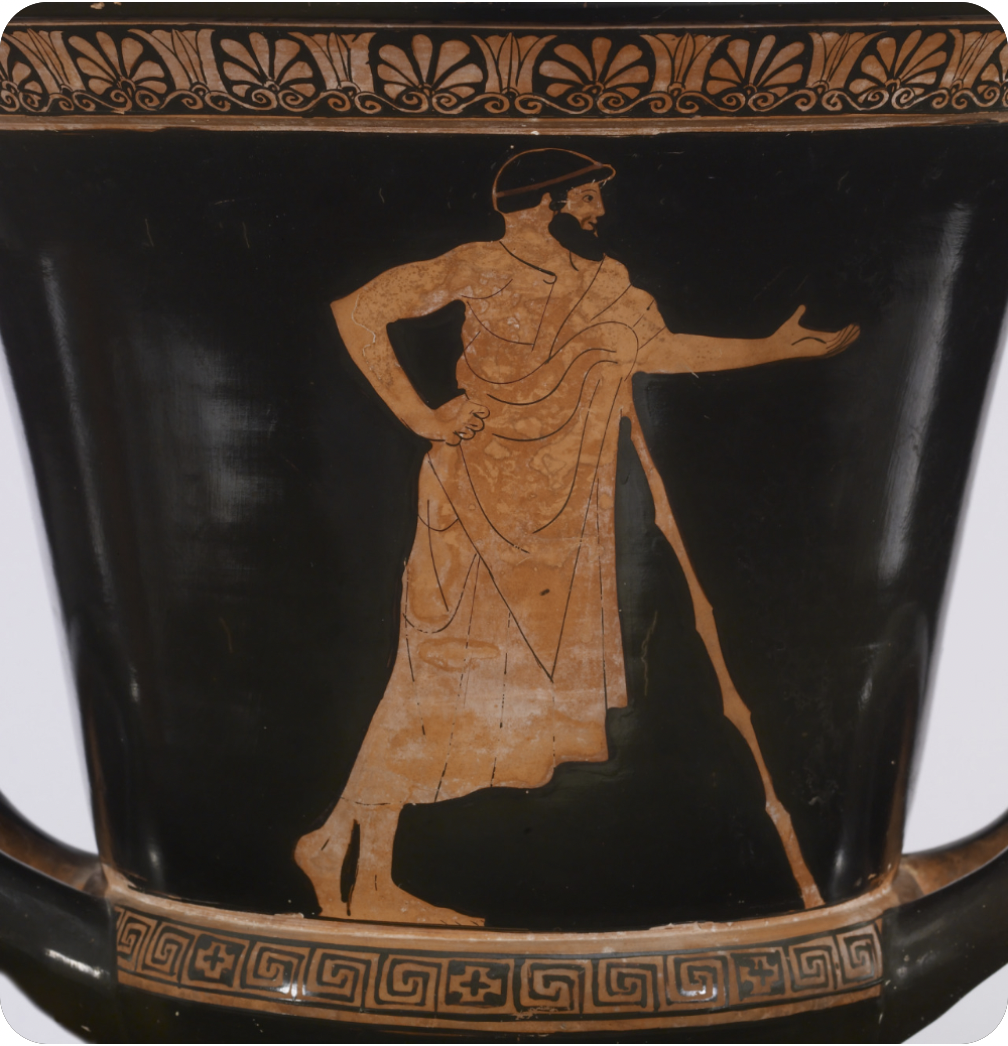IG II3 4 518
Phanostratos from Halicarnassus, the son of Herakleides: tragic poet
Date:
307/306 BC
Edition:
ὁ δῆμος ἐ[χορήγει ἐπ’ Ἀναξι]κράτους ἄρχοντος.
ἀγωνοθέ[της Ξενοκλῆς Ξ]είνιδος Σφήττιος.
ποιητὴς τραγωιδοῖς ἐνίκα [Φανόστρατο]ς Ἡρακλείδου Ἁλικαρνασσεύς.
ὑποκριτὴς τραγωιδοῖς ἐνίκ[α Ἱερομνήμ]ων Εὐανορίδου Κυδαθηναιεύς.
5 ποιητὴς κωμωι[δ]οῖς ἐνί[κα Φιλήμω]ν Δάμωνος Διομειεύς.
ὑποκριτὴς κ[ωμωδοῖς ἐνίκα Κάλλιπ]πος Καλλίου Σουνιεύς.
Translations (en):
“The demos was choregos under the archon Anaxikrates;
the agonothetes was Xenokles of the deme of Sphettos, the son of Xeinis;
Phanostratos from Halicarnassus, the son of Herakleides, won as poet in tragedy section;
as actor in the tragedy section Hieromnemon of the demos of Kydathenaion the son of Euanorides, won;
as poet in the comedy section Philemon of the deme of Diomeia, the son of Damon, won;
as actor in the comedy section Kallippos of the deme of Sounion, the son of Kallias, won.”
Translations (it):
“Il popolo era corego sotto l’arconte Anaxikrates; l’agonoteta (era) Xenokles del demo di Sphettos, figlio di Xeinis; come poeta nella categoria delle tragedie vinceva Phanostratos di Alicarnasso, figlio di Herakleides; come attore nella categoria delle tragedie vinceva Hieromnemon del demo di Kydathenaion, figlio di Euanorides; come poeta nella categoria delle commedie vinceva Philemon del demo di Diomeia, figlio di Damon; come attore nella categoria delle commedie vinceva Kallippos del demo di Sounion, figlio di Kallias.”
Commentary (en):
The epigraphic sources variously attest to the career carried out by the tragic poet Phanostratos and the fame obtained in his birth land and abroad, during his life and after his death. The poet achieved at least one victory in the Athenian dramatic festivals, and in Delos he received the proxeny and other privileges, probably for artistic commitment. The city of Halicarnassus acknowledged him, both in life and after his death, as a source of civic pride and as one of the most representative figures of the cultural production of his time.
Commentary (it):
Le fonti epigrafiche attestano variamente la carriera e la fama riscossa dal poeta tragico Phanostratos, in patria e fuori, nel corso della sua vita e ancora molto dopo la sua morte. Il poeta ottenne almeno una vittoria agli agoni ateniesi e a Delo fu insignito della prossenia e di altri privilegi, presumibilmente per onori artistici. La città di Alicarnasso lo collocò sia in vita sia nei secoli a seguire tra le personalità motivo di orgoglio patrio, riconoscendo Phanostratos come uno dei personaggi più rappresentativi della produzione culturale del suo tempo.
Bibliography:
Cf. IG II2 2794; IG XI 4, 528; Isager 1997, 1998.
https://www.atticinscriptions.com/inscription/IGII2/3073
cf. IG II2 3073


